Business Law 4: Legal Opinion on Contract Breach and Damages Claim
VerifiedAdded on 2022/11/28
|5
|843
|101
Case Study
AI Summary
This document presents a legal opinion on a breach of contract case involving two scenarios: a breach by John, who failed to deliver the agreed-upon number of rocking horses, and a breach by Ruth, who delivered the rocking horses late. The analysis focuses on advising Sam regarding her options for claiming damages. It examines different types of damages, including restitution, reliance, and expectation interests, referencing relevant case law such as Farley v Skinner, Anglia Television v Reed, Chaplin v Hicks, and Hadley v Baxendale. The opinion determines which types of damages Sam is entitled to recover from John and Ruth, considering their knowledge of Sam's intentions and the remoteness of the damages. The conclusion specifies the recoverable damages for each breach, differentiating between the restitution, reliance, and expectation interests based on the specifics of each contractual agreement and the parties' knowledge of potential profit losses.
1 out of 5
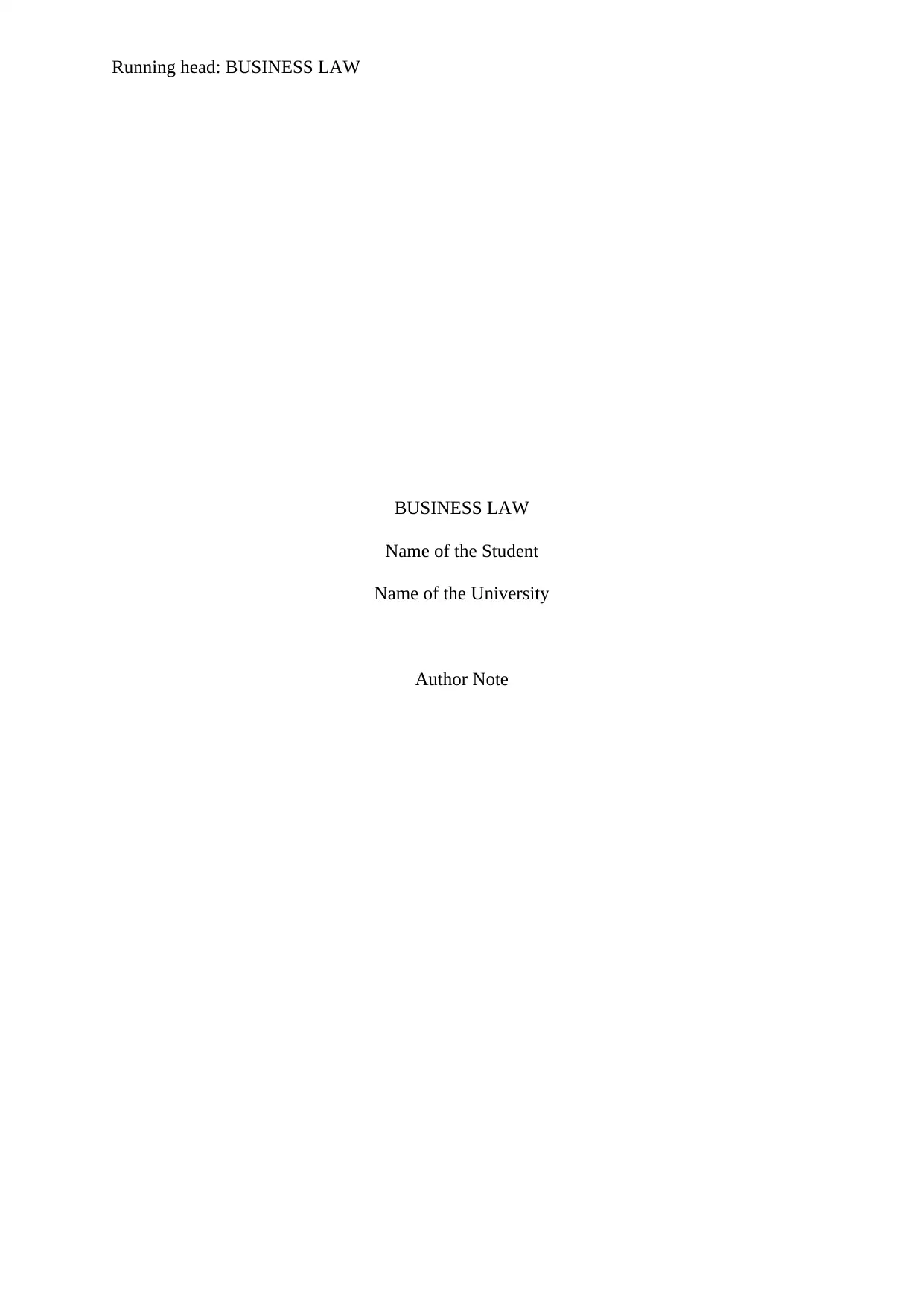
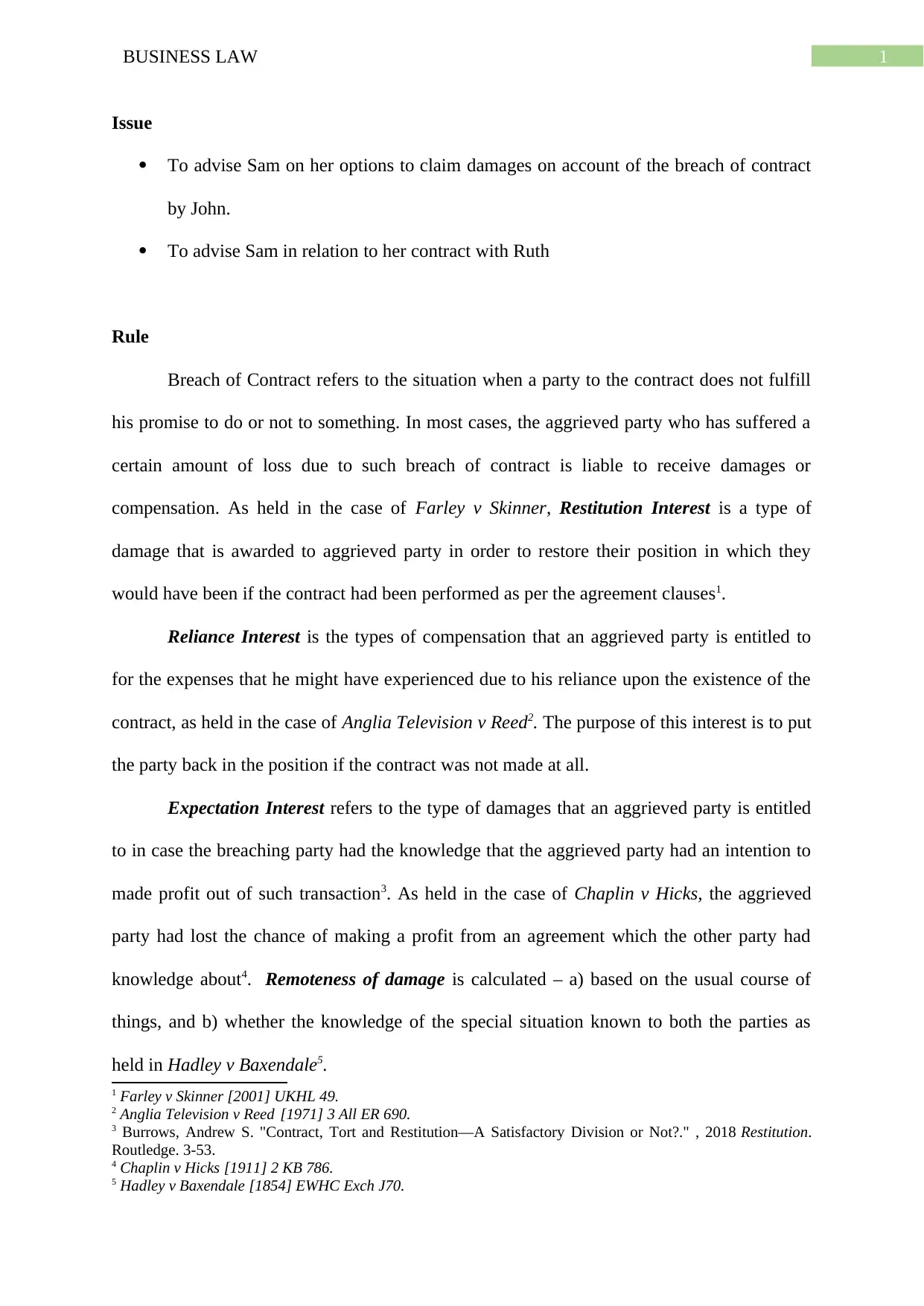
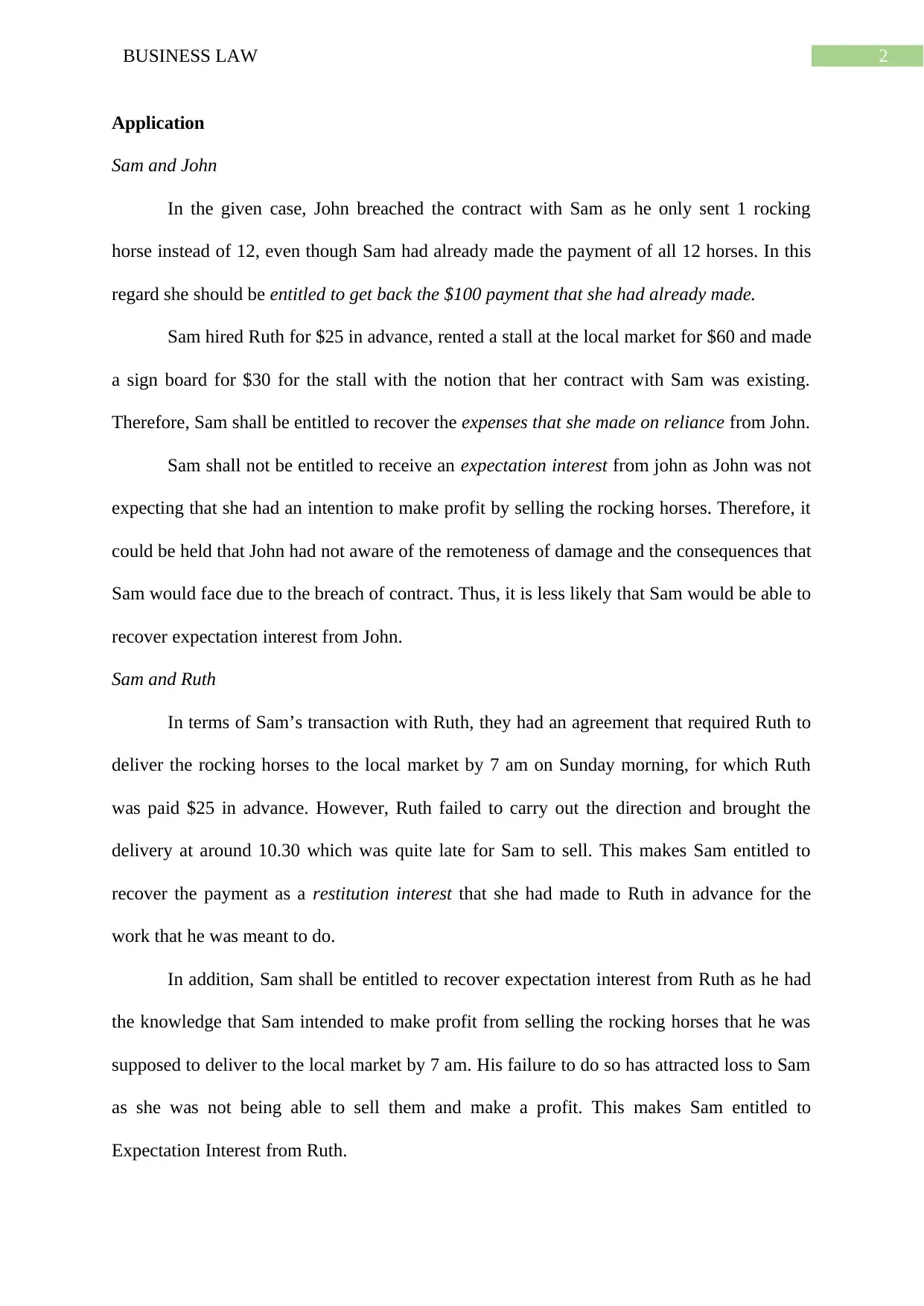

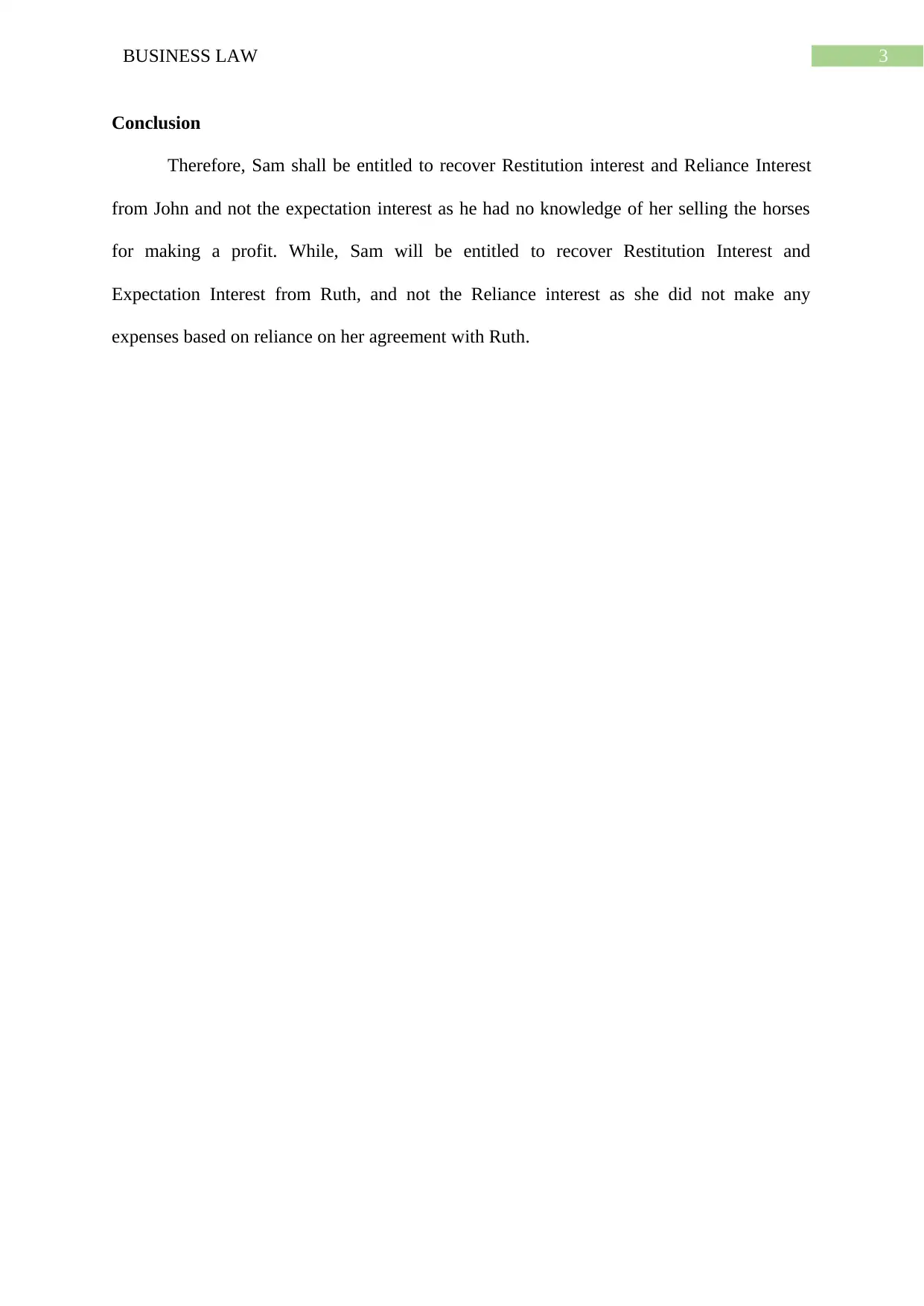
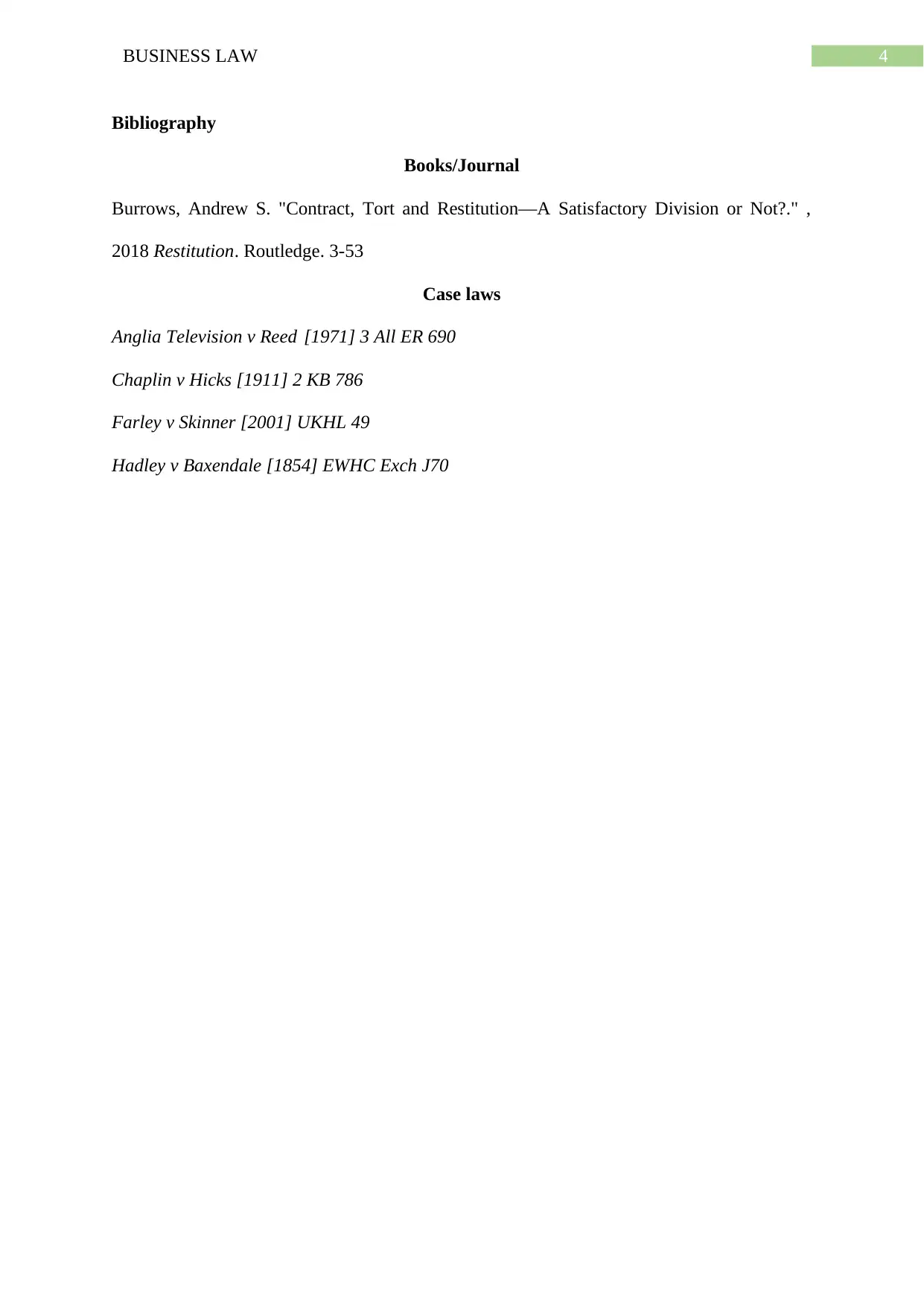






![[object Object]](/_next/static/media/star-bottom.7253800d.svg)